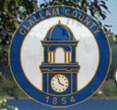Description:
Basic Functions: Responsible for (1) the investigation, preparation and prosecution of criminal cases as assigned in the district, superior and juvenile courts for A County in Washington State and appeals to the appellate courts; (2) the investigation into the cause of death of all unattended deaths in the county; (3) the training of law enforcement officers in the substantive, procedural and evidentiary law and its application to criminal investigations; (4) representing the county in litigation brought on behalf of and against the County, its officials and employees acting in their official capacities as assigned; (4) providing legal advice to the County Council, County Elected Officials, department heads, and departments in legal matters within their official capacities and duties, as assigned; (5) drafting legislative ordinances and resolutions, providing written interpretations and opinions, reviewing contracts and approving them as to form and communicating with the public regarding the duties of the prosecutor's office.Minimum Qualifications:
Juris Doctor or completion of approved training as legal clerk; admission to practice law in Washington; experience in trying felony cases; must be capable of extensive research, public speaking, persuasive and expository writing; or any combination of education and experience that demonstrates the ability to perform the essential functions of the position. Must hold, or have the ability to obtain, a valid Washington State Driver's License; and must be able to successfully pass a criminal background check.
Principle Duties:
- Conducts Training of Deputy Sheriffs on Procedural, Substantive Law, and Evidentiary Law, and Its Application To, and Impact On, Criminal Investigations.
- Reviews police reports and statements relating to criminal investigations for completeness and to determine legal and factual sufficiency for prosecution of criminal charges; interviews witnesses; confers with law enforcement officers, forensic scientists and experts; researches and prepares legal memoranda; determines charges to be filed where cases are referred to the prosecutor's office; outlines charges to be filed; drafts legal documents to be filed with the court; represents the state in criminal court pretrial and trial proceedings in district, superior and juvenile courts as assigned; drafts jury instructions; makes sentencing recommendations; reviews all requests for information from defense attorneys; conducts plea-negotiations with defense lawyers; drafts legal forms used by the district, superior and juvenile courts; prepares legal documents for court proceedings; represents county in appellate courts, to include researching and preparing legal memoranda and appearing before the courts to argue legal issues; confers with clerks of the superior and district courts regarding legal issues, trial calendars, and the basic daily functioning of courts; confers with mental health and alcohol counselors and probation officers regarding the progress of persons placed on probation; drafts and prepares documents to revoke probation for defendants who violate probation conditions, and represents the county in violation hearings.
- Directs the work of legal assistants in the preparation and filing of legal documents, preparation of information packets for defense attorneys and the preparation and maintenance of legal files.
- Conducts and coordinates investigations with law enforcement officers into the causes and circumstances surrounding natural and unnatural deaths of citizens in A County in Washington State; attends autopsy examinations conducted by pathologists and confers with physicians, medical personnel, toxicologists, morticians, witnesses and family members to determine cause and circumstances of death; determines cause of death and prepares death certificates.
- Maintains current knowledge of the substantive, procedural and evidentiary laws of the State of Washington, federal constitutional law.
- Reviews new legislation and appellate decisions to determine the present state of the law; provides memoranda to various county agencies regarding the applicability of new laws and rules to their policies and the performance of their jobs. Researches legal issues, analyzes and applies legal principles, facts, evidence and precedents to legal problems; presents laws, facts, evidence and arguments clearly and logically in written and oral form.
- Maintains current knowledge of and access to the procedural rules of each forum in which cases are presented. Drafts and presents motions, conducts and responds to discovery, researches statutory and case authority, drafts and presents authorities and arguments to decision makers, e.g., hearing examiners, administrative boards, courts or juries. Conducts negotiations for settlement simultaneously with pending litigation.
- Serves as legal advisor. Cultivates relationships and confidences of client commissioners, department heads and employees by demonstrating legal competence and prudent judgment. Researches, drafts and presents proposed legislation, interpretations of law and legal opinions.
- Reviews contracts for legal adequacy and intended effect. Maintains current knowledge of labor rules, public bidding and contract requirements. Identifies liability risks, and initiates remedies for enforcement of performance by contractors.
- Acts within the scope of his or her responsibilities, working as a public employee and municipal officer with courtesy and professionalism, and adhering to the highest standard of ethics in accordance with RCW 42.52
- Perform other related duties as assigned.
Physical and Mental Requirements:
Must be able to access crime scenes in isolated areas; be able to listen to people relate facts and the manner in which they speak and relate that information to other facts in a case; speak in a clear and concise manner in public settings; remember the basic content of numerous statutes, regulations, court rules, evidentiary rules, holdings of appellate courts, and apply them instantaneously to changing circumstances in the course of a court proceeding; must be able to speak, see, hear and articulate clearly; must be able to use hands to finger or feel objects and use office equipment and reach with hands and arms.
Working Conditions: Usually in an office setting and in a court room; may be required to travel by car, airplane, boat and foot to crime scenes, which may be in isolated places and with rough terrain; travel to meet and interview witnesses and to attend autopsies and out of county court, administrative proceedings and trainings.







